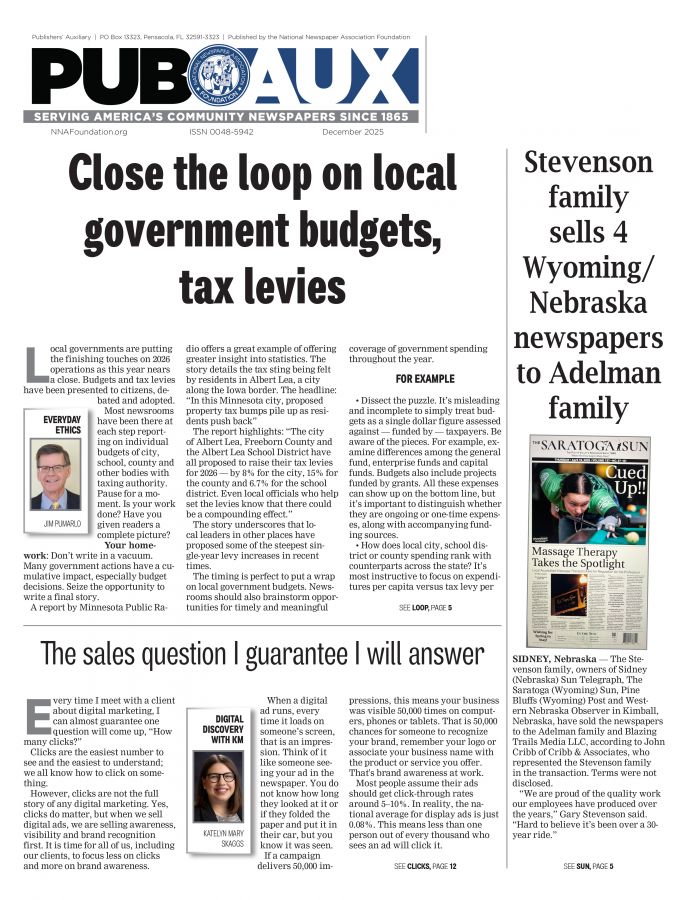Letter from the editor: How the digital age changes how we cover sex
Feb 26, 2015
By SARA DINATALE
Editor in Chief | The Spectrum, Buffalo, NY
There’s a good chance you picked up The Spectrum today because you saw “SEX” bold across the cover.
Maybe you’re a faithful reader, eager to pick us up every Monday, Wednesday and Friday—or, perhaps, you just wanted to read about fetishes, threesomes and the new sex shop on South Campus.
Look, I get it.
There’s a reason this is our most-read issue of the year. Most college students like reading about sex, but there’s more to the issue than that—this year especially.
College newspapers across the country produce sex issues, many of them mainly feature columns, sex advice and pieces about safe sex practices.
The Spectrum team wanted to go beyond that this year. I think we did, doing research and reporting on topics we thought students didn’t fully understand.
But we ran into problems we didn’t anticipate. Students, many absolutely infatuated with sex, are scared to talk about it … to a publication.
Millennials have been told over and over to be conscious of what they post on the Internet. And UB, you seem to have listened. The No. 1 answer my reporters got from potential sources on our mission to write real stories about real topics was, “Only if you don’t use my name. I don’t want this to show up on a Google search.”
We obliged.
We have every right to publish this edition—every right to write about things frankly that may be hard to talk about. And we know they’re hard to talk about, which is why we’ve granted sources the option to talk to us anonymously, something you’ll rarely see in our regular editions.
The sexual revolution in the 1960s and ’70s allowed Americans to loosen their morals on premarital sex, casual sex and birth control use.
The digital revolution seems to have made students scared to talk about those very topics on record, fearing what will be left behind in their digital footprint.
That response made us want to run this issue even more, with the hope maybe an article explaining why fetishes shouldn’t be stigmatized or the psychology behind threesomes would make people feel at least a little more comfortable with the less-talked-about parts of sexuality.
A quote in a college newspaper shouldn’t turn off a future employer—but I can’t say for sure it won’t. I can say The Spectrum’s former sex columnist, who put her name on every column, is now killing it at law school.
It shouldn’t be taboo for a student to openly talk about sex, but even my own editors can’t control how society (mainly employers) might perceive them if they put their names to an article reviewing sex positions.
We’ve been producing a sex issue for five years. It’s become a staple in The Spectrum newsroom, but doing something because we’ve always done it is not a good reason to do anything.
Every year, the incoming editor in chief evaluates our list of special issues. I never considered taking away the sex issue, but I did think about why it was important to keep.
Stories come up every few years—if not more often—about college papers frustrating administrators with sex-focused editions. In 2014, a paper at Central New Mexico Community College had its sex issues swiped off the racks by administration. The college shut the newspaper down, just to later reinstate it and return the newspapers, realizing their failure to acknowledge the First Amendment.
The Spectrum is an independent publication, meaning we decide what goes onto our pages. With that comes a lot of responsibility, especially in an issue that forces us to question what’s justifiable and what isn’t.
This issue isn’t crude for the sake of being crude. There are no photos of half-naked models throwing condoms in air as some gimmick to get you to pick up the paper. We’ve aimed to have well-thought-out images to accompany well-thought-out content.
Last year, I wrote an article revealing that of the 1,003 students surveyed, 42 percent didn’t get tested for sexually transmitted infections. The year before, I chronicled the life of a student stripper. And this year, there are more stories I hope get you to think and challenge how you understand sexuality.
Sex is messy, fun, serious and worth talking about meaningfully, even if you’re not having it.






